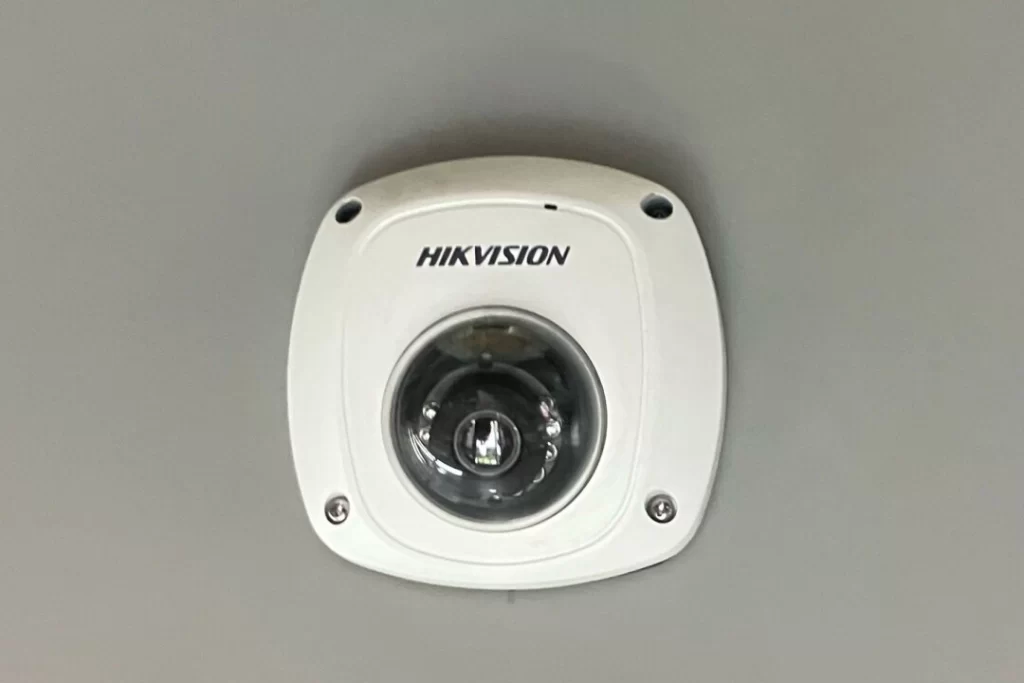Hikvision’s products have been banned from government-owned sites in the UK, U.S., and the European Union.
If ever I wanted to be wrong is now at the time of writing this. I have stated before that my Country is now a Communist One and this article just adds more proof to the pudding. South Australia just banned the use of the names Australia Day, Anzac Day and Christmas. Commie Albo supports the current thing of getting rid of Australia Day. Queensland Cops recently placed me and all other Christians into the category of terrorists. And now this, Queensland wants to use cameras that have been banned throughout the world.
If you don't believe me, then click on the bloody links above that prove it.
David Ashton
Here is the article:

By Nina Nguyen 1/22/2024
Buses in the Australian state of Queensland could soon install China-made closed-circuit television (CCTV) cameras after already being purged from federal government buildings.
The move has raised security concerns that it could give the Chinese Communist Party (CCP) access to sensitive data due to the manufacturer’s links with the authoritarian regime and its military.
Chinese technology company Hikvision has formed a contract with the Queensland government to supply surveillance cameras to 200 rail replacement buses, according to The Saturday Courier-Mail.
Bart Mellish, Queensland transport minister, said he was not across the full background of the issue as the contract was made before he was minister, but said he would ask the department to keep a close eye on it.
“As long as they comply by Australian law … I’ve advised that there is no issue at this stage,” he told 7News.
Australia Removes China-Made Cameras From Government Sites
In February 2023, the Australian government ordered the removal dozens of Hikvision and Dahua’s internet-enabled cameras from federal government offices, including foreign affairs and defence sites, due to national security fears.
The move came after Shadow Minister for Cyber Security and Countering Foreign Interference, James Paterson, released the findings of a six-month audit of all Commonwealth departments.
He launched the audit after the Home Affairs Department failed to advise him on how many Chinese-made devices were installed in government buildings.
It was revealed that the Chinese-made cameras and security equipment were found in almost every department except in the Prime Minister and Cabinet and Agriculture departments.
Mr. Paterson said this presented a “unique security risk to Australia.”
“With Hikvision and Dahua devices fitted across the Australian government, including at the heart of our national intelligence community, the companies and their employees may be forced to provide the Chinese government with their 24-hour access to valuable surveillance data,” he said on Feb. 9, 2023.
Chinese Tech Companies’ Links To The CCP
Hikvision and Dahua are two of the world’s largest video surveillance manufactures, and both were accused of being involved in the CCP’s human rights violation against the Uyghurs in Xinjiang.
Meanwhile, Hikvision’s products have been banned from government-owned sites in the United Kingdom, the United States, and the European Union.
According to Ausma Bernot and Marcus Smith, security experts at the Australian Institute of International Affairs, under the framework of “authoritarian capitalist dynamic,” companies like Hikvision and Dahua need to “actively align their products with state narratives, leveraging government materials to promote offerings.”
“This ‘party-state capitalism’ is characterised by maintaining CCP political power over companies, influencing the broader merger between state strategies and corporate goals,” they wrote in a commentary on September 2023.
“The CCP’s emphasis on political loyalty to China’s Party-state offers financial security to private and semi-private companies in return (for example, state subsidies), fostering a complex interplay between private and state interests.”
The experts argued that while Australian government corporations could choose not to adopt Chinese cameras for sensitive activities, this approach “might not fully address data security or espionage risks.”
They called on the government to develop comprehensive data privacy regulation to account for the “sophisticated nature of information-collecting technologies” and prevent unauthorised integration of surveillance capabilities.
Cindy Li contributed to this report.
Follow me at: